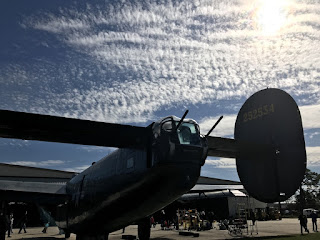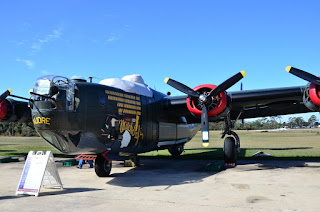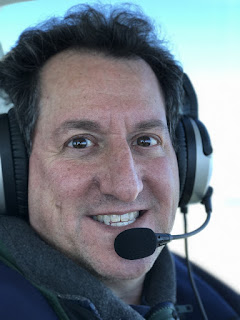I have written a great deal about flying the plane but have not discussed maintaining it. Since you can't just pull over if something goes wrong you need to keep on top of maintenance.
Now most maintenance must be done by a licensed mechanic but pilots are allowed to do some specific tasks. For example oil changes which I have started doing myself. I stay strictly within the rules and actually just do a small portion of the list. Just because you are allowed to do something does not mean you should. Before I started doing my own oil changes I watched the mechanic several times and then had a friendly mechanic walk me through the process to make sure I knew how to perform all steps correctly.
In addition to ad hoc maintenance the plane must have an inspection annually. The inspector goes over the plane from top to bottom looking for issues and assuring the plane is airworthy. During this process they open the plane up by taking out parts of the interior and opening all the inspection panels. Most maintenance you should do right away but some things you might defer to the annual when the plane is open.
For example a few months back while pre-flighting the plane, I found the right brake caliper had a drip of brake fluid on it. That was a have to do right away type of thing and it went right to the mechanic for new O-rings. Another example, the struts on the landing gear have fluid and Nitrogen gas in them. Over the last several months I have noted that that the struts are a bit lower, they were set near the top of the spec and over time some nitrogen leaks out and but the plane was still within normal specification. While the plane is on jacks for inspection, I will have them serviced and brought back to the top of the spec.
Some things we do proactively. The alternator has been working perfectly but given its age and number of hours in use, it will come off the plane this year and get overhauled back to new limits and then re-installed. This is not required but proactively replacing things on a schedule leads to better reliability. Generally it is easiest to do this during the annual as the plane is down anyway.
The plane has been delivered, I dropped it off 2 days early because of my schedule so now it is a waiting game while the work is done. The shop was quite busy, I counted 25+ planes there for work. It is about a 30 minute flight South but a friend was nice enough to fly me home. Not a Beechcraft but a good looking Cirrus.
Now most maintenance must be done by a licensed mechanic but pilots are allowed to do some specific tasks. For example oil changes which I have started doing myself. I stay strictly within the rules and actually just do a small portion of the list. Just because you are allowed to do something does not mean you should. Before I started doing my own oil changes I watched the mechanic several times and then had a friendly mechanic walk me through the process to make sure I knew how to perform all steps correctly.
In addition to ad hoc maintenance the plane must have an inspection annually. The inspector goes over the plane from top to bottom looking for issues and assuring the plane is airworthy. During this process they open the plane up by taking out parts of the interior and opening all the inspection panels. Most maintenance you should do right away but some things you might defer to the annual when the plane is open.
For example a few months back while pre-flighting the plane, I found the right brake caliper had a drip of brake fluid on it. That was a have to do right away type of thing and it went right to the mechanic for new O-rings. Another example, the struts on the landing gear have fluid and Nitrogen gas in them. Over the last several months I have noted that that the struts are a bit lower, they were set near the top of the spec and over time some nitrogen leaks out and but the plane was still within normal specification. While the plane is on jacks for inspection, I will have them serviced and brought back to the top of the spec.
Some things we do proactively. The alternator has been working perfectly but given its age and number of hours in use, it will come off the plane this year and get overhauled back to new limits and then re-installed. This is not required but proactively replacing things on a schedule leads to better reliability. Generally it is easiest to do this during the annual as the plane is down anyway.
The plane has been delivered, I dropped it off 2 days early because of my schedule so now it is a waiting game while the work is done. The shop was quite busy, I counted 25+ planes there for work. It is about a 30 minute flight South but a friend was nice enough to fly me home. Not a Beechcraft but a good looking Cirrus.







































